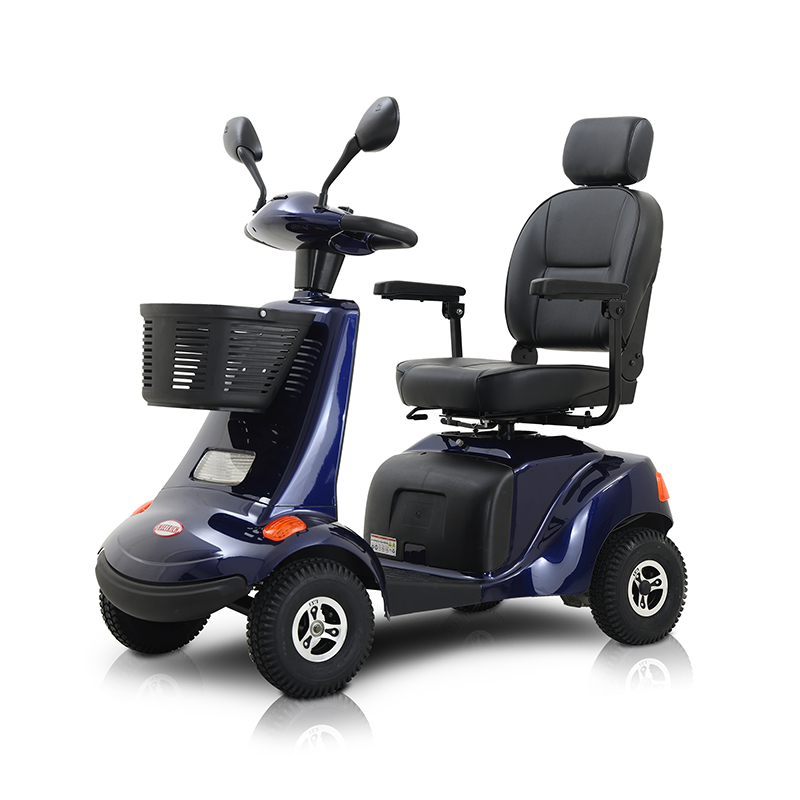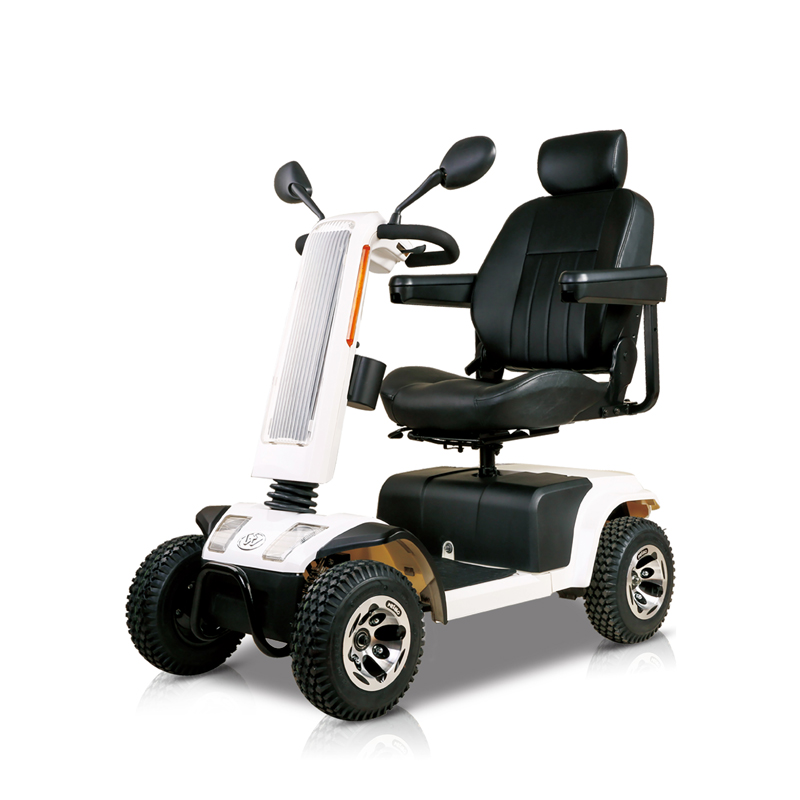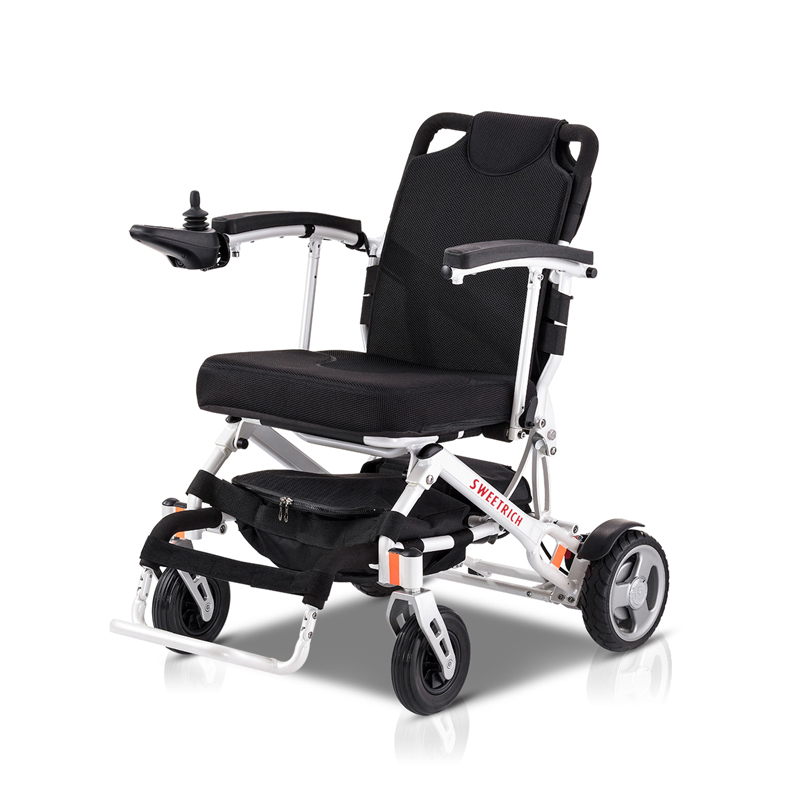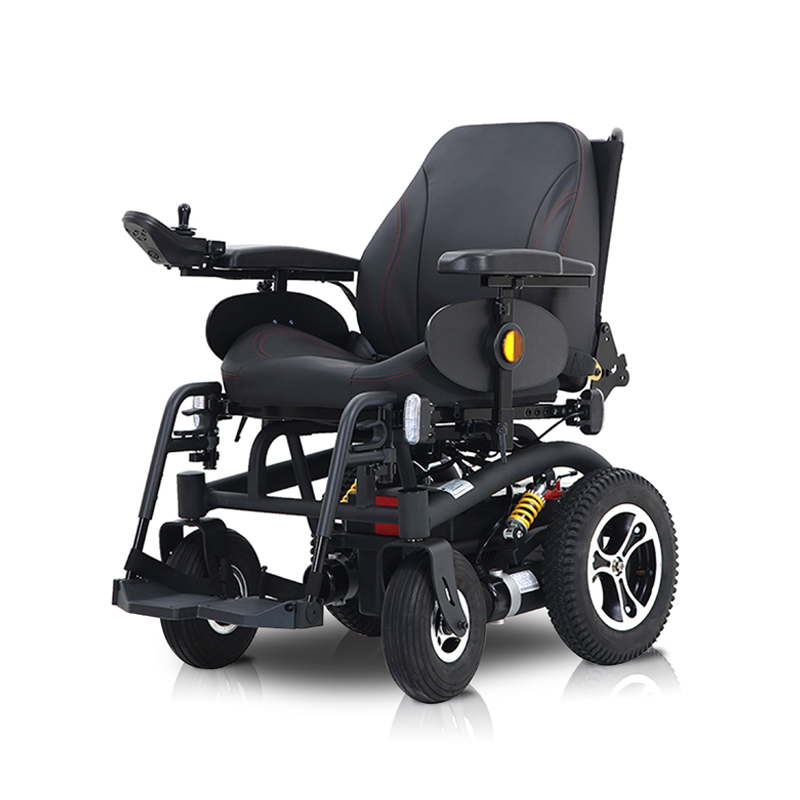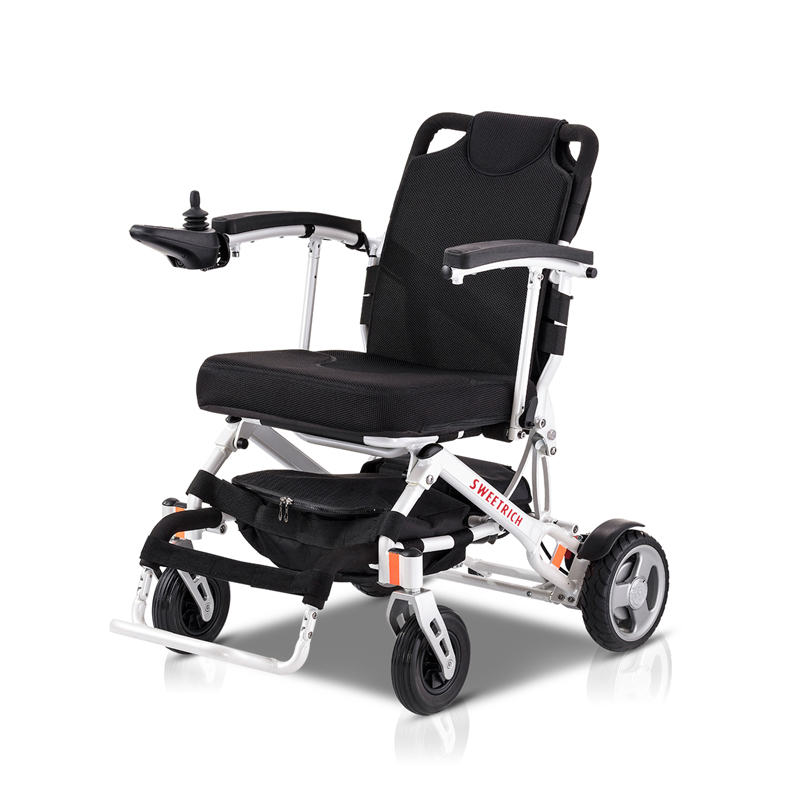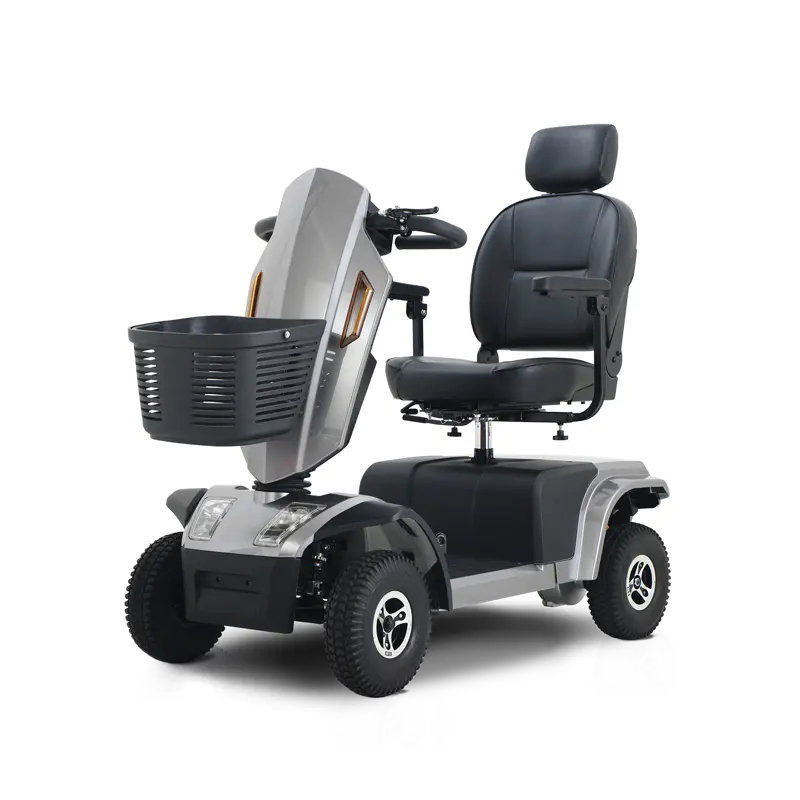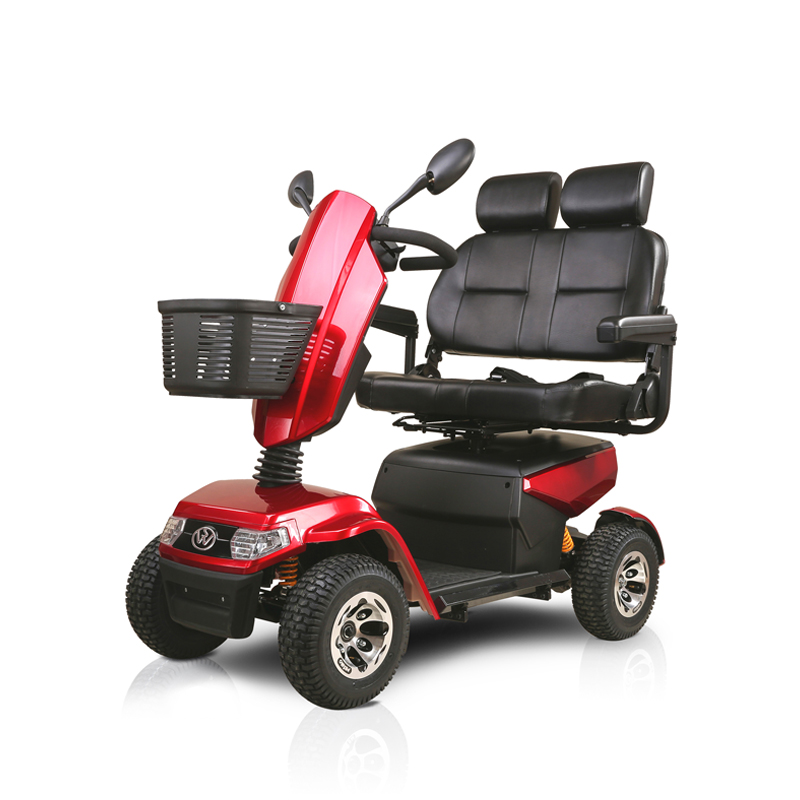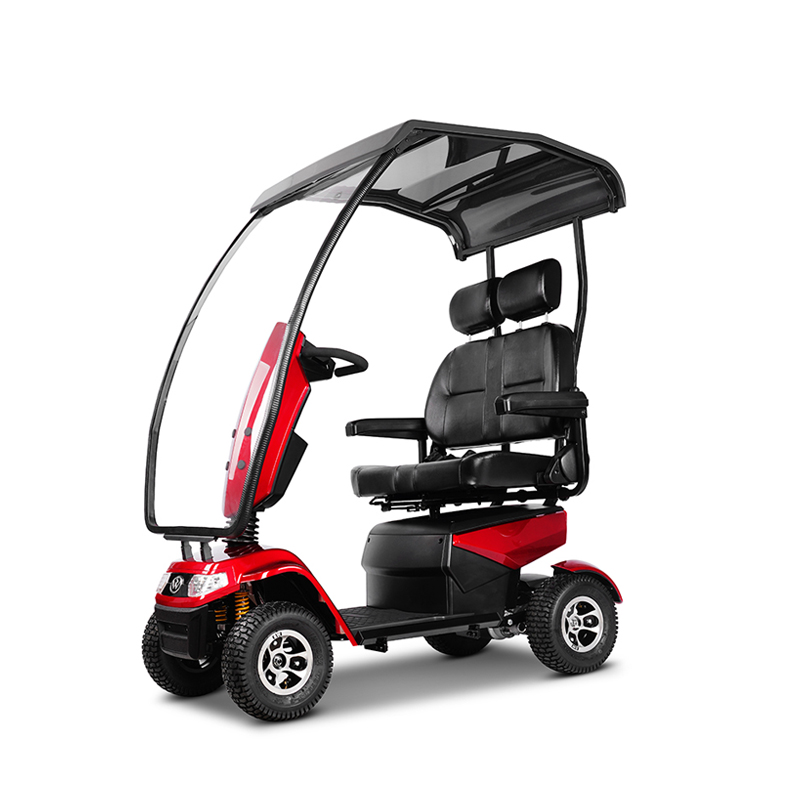Unique advantages of aluminum-lithium batteries
(I) High energy density
Energy density is one of the key indicators for measuring battery performance, which is directly related to the range of electric wheelchairs. Aluminum-lithium batteries have a high energy density and can store more electrical energy in a smaller volume and weight. For portable electric wheelchairs, this means that while ensuring that the wheelchair is light and easy to carry, it can provide a longer driving distance. Users do not need to charge frequently to meet daily travel needs, which greatly improves the practicality and convenience of electric wheelchairs.
(II) Long cycle life
Cycle life refers to the number of times a battery can maintain a certain performance during the charging and discharging process. Aluminum-lithium batteries have a long cycle life, and their capacity decay is relatively small after multiple charging and discharging. This feature reduces the cost of using electric wheelchairs, and users do not need to frequently replace batteries, reducing the economic burden. At the same time, a long cycle life also means that the battery has better stability, which can provide continuous and stable power support for electric wheelchairs and extend the overall service life of electric wheelchairs.
(III) Fast charging capability
In the fast-paced modern life, time efficiency is crucial. Aluminum-lithium batteries have the ability to charge quickly and can be fully charged in a short time. This is very practical for portable electric wheelchair users, who can quickly charge their wheelchairs during short breaks or at night without affecting their travel plans due to long charging times. The fast charging function increases the flexibility of electric wheelchairs and allows users to arrange their lives more freely.
(IV) High safety
Safety is an important factor that cannot be ignored during the use of electric wheelchairs. Aluminum-lithium batteries use advanced safety technology and have good overcharge, over-discharge, short circuit and overcurrent protection functions. During charging and use, they can effectively prevent dangerous situations such as battery overheating, fire and explosion. In addition, the chemical properties of aluminum-lithium batteries are relatively stable and not prone to leakage, providing users with reliable safety protection.
(V) Good environmental protection
With the continuous improvement of environmental awareness, people are paying more and more attention to the environmental performance of products. Aluminum-lithium batteries have little impact on the environment during production and use. It does not contain harmful heavy metals such as lead, mercury, cadmium, etc., and is easy to recycle and dispose of after disposal, which meets the requirements of sustainable development. Choosing aluminum-lithium batteries as the power source for electric wheelchairs can help reduce environmental pollution and promote the development of green travel.
Compatibility with the needs of portable electric wheelchairs
(I) Meeting the portability requirements
One of the core features of portable electric wheelchairs is that they are light and easy to carry. Aluminum-lithium batteries are light in weight and small in size, and can be perfectly integrated with the overall design of electric wheelchairs without adding too much extra burden. Users can easily fold and carry electric wheelchairs to different places, such as public transportation, shopping malls, hospitals, etc. This portability allows people with limited mobility to participate in social activities more freely, improving their quality of life.
(II) Adapting to complex environments
The use environment of electric wheelchairs is complex and diverse, and may face harsh conditions such as high temperature, low temperature, and humidity. Aluminum-lithium batteries have good environmental adaptability and can work normally in a wide temperature range. Whether in hot summer or cold winter, they can maintain stable performance and provide reliable power for electric wheelchairs. In addition, aluminum-lithium batteries have good moisture resistance and can resist a certain degree of humid environment, ensuring that electric wheelchairs can be used safely in various environments.
(III) Ensuring user safety
For users with limited mobility, the safety of electric wheelchairs is of vital importance. The high safety of aluminum-lithium batteries can effectively reduce the risks during use. Its built-in safety protection mechanism can monitor the status of the battery in a timely manner. Once an abnormality is found, it will immediately take measures to protect it and avoid accidents. At the same time, the stability of aluminum-lithium batteries can also ensure the stability of electric wheelchairs during driving, reduce bumps and loss of control caused by battery failure, and provide users with safer travel protection.
Comparative analysis with other battery types
(I) Comparison with lead-acid batteries
Lead-acid batteries are one of the commonly used power sources for traditional electric wheelchairs, but they have disadvantages such as low energy density, heavy weight, and short cycle life. In contrast, aluminum-lithium batteries have obvious advantages. The weight of aluminum-lithium batteries is only about one-third of that of lead-acid batteries, and the volume is also smaller, which can significantly reduce the weight of electric wheelchairs and improve portability. Moreover, the cycle life of aluminum-lithium batteries is several times that of lead-acid batteries, and the cost of use is lower.
(II) Comparison with NiMH batteries
Although NiMH batteries have high energy density and good environmental performance, they have a high self-discharge rate and a long charging time. Aluminum-lithium batteries have a low self-discharge rate, can maintain power for a long time, and can be fully charged in a short time. In addition, the price of aluminum-lithium batteries is more competitive than that of nickel-metal hydride batteries, and has a higher cost-effectiveness.
(III) Comparison with lithium-ion batteries
Lithium-ion batteries are one of the most widely used battery types at present, but aluminum-lithium batteries have unique advantages in some aspects. Aluminum-lithium batteries have relatively low costs and perform better in terms of safety. Lithium-ion batteries are prone to thermal runaway under conditions of overcharging and over-discharging, while aluminum-lithium batteries have a more complete safety protection mechanism that can effectively avoid such problems.

